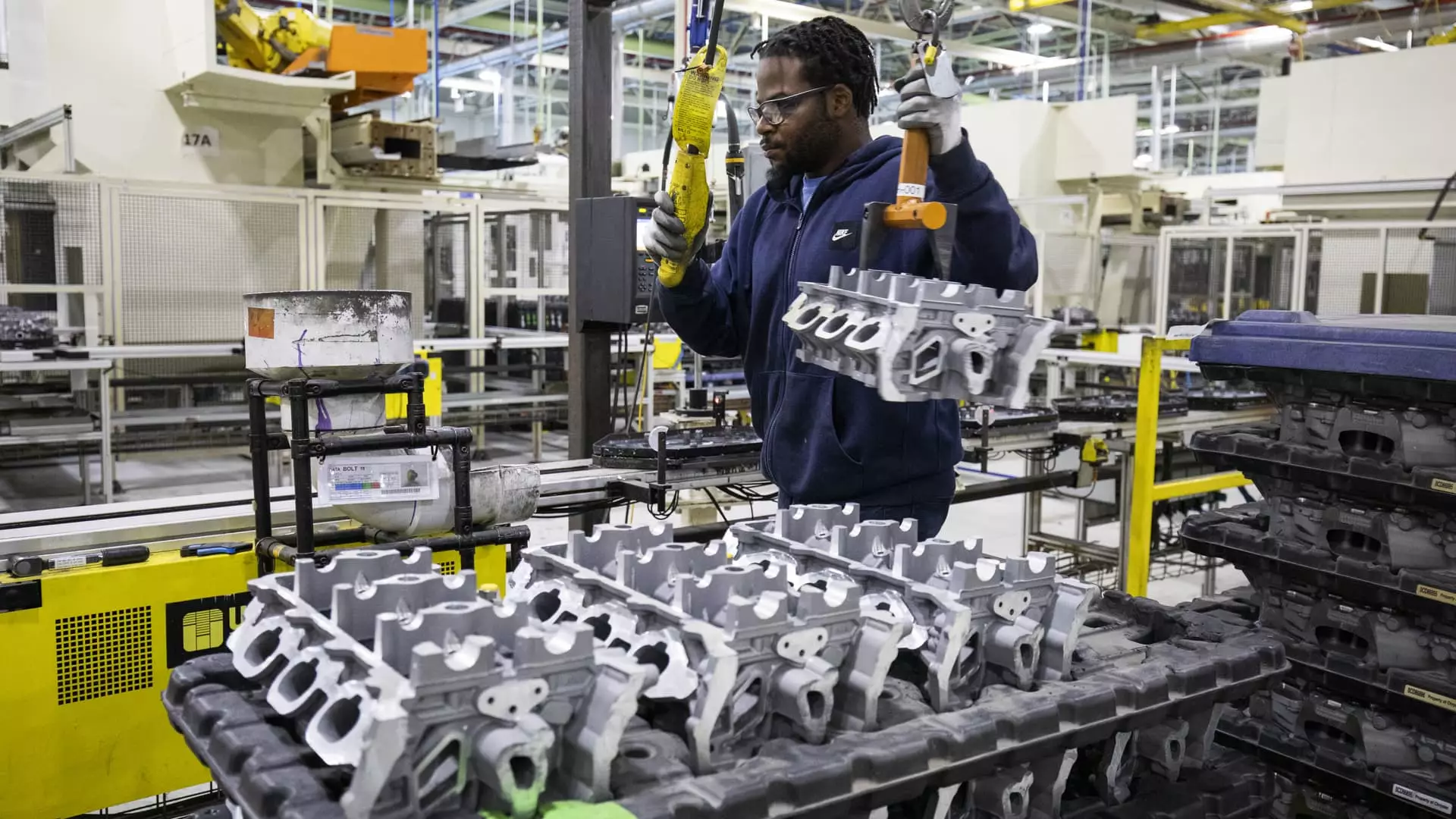The American automotive industry, often perceived as a battleground of corporate rivalry, has unexpectedly banded together to challenge a looming government crisis: the proposed 25% tariffs on auto parts. In an unprecedented act of solidarity, six prominent policy groups have joined forces, warning that these tariffs could deliver a crushing blow to U.S. automotive production. This rare collaboration among stakeholders, including automakers and suppliers, indicates the severity of the situation and the unifying pressure of impending economic peril.
The letter sent to key members of the Trump administration epitomizes the anxiety that permeates the auto industry. With many suppliers already teetering on the edge of financial distress, the letter explicitly outlines the potential for catastrophe—production stoppages, layoffs, and even bankruptcies. When the fabric of supply chains is as fragile as it is today, the breakdown of just one supplier can trigger a domino effect, ultimately impacting automakers and their workforce. This is no longer merely a matter of industry projections; it is an impending crisis that necessitates immediate attention.
The Human Cost of Policy Decisions
What makes the ramifications of these tariffs even more acute is the looming threat to American jobs. With the automotive sector accounting for around 10 million U.S. jobs and generating an annual economic impact of $1.2 trillion, the stakes couldn’t be higher. Policymakers must recognize that every number in their reports corresponds to real lives—workers who drive our economy forward. A disruption in this vital sector not only risks unemployment for thousands but also has the potential to destabilize local economies that heavily rely on these jobs.
Those in power must grasp the broad ramifications of their decisions. The impending tariffs are not merely an issue of national revenue; they are a matter of economic sustainability for countless American families. If a data point can lead to job losses in the scale of millions, does it not demand a heightened degree of scrutiny and reconsideration? The administration must weigh the immediate fiscal benefits against the long-term repercussions for American laborers.
The Contradiction of Protectionism
Interestingly, the current sentiment of support from the auto industry resembles a classic critique of protectionist policies: they often hurt the very sectors they intend to shield. Trump claims that these tariffs are designed to bolster American manufacturing. However, the discomfort within the industry suggests otherwise. Experts have articulated a disheartening truth: it’s not the automakers who would bear the brunt of these tariffs to the greatest extent; it is the suppliers, perched precariously under mounting costs.
Furthermore, the very nature of global supply chains defies any simplistic notion of a nationalized economy. An instantaneous shift away from foreign suppliers is neither feasible nor practical. The automotive industry, by its very design and complexity, requires time—years, perhaps—to be restructured. The letters from the allied groups underscore this reality; calling for time to adapt rather than rushing headlong into ill-conceived regulations.
Advocating for a Pragmatic Approach
The unifying call from these automotive leaders is a plea for rational policy, one that takes into account the operational intricacies of manufacturing. They advocate for a balanced approach that fosters U.S. job growth while avoiding punitive tariffs that jeopardize existing jobs. This pragmatic standpoint deserves our attention.
President Trump’s previous indications of willingness to reconsider the tariffs come as a beacon of hope amidst this uncertainty. Striking a balance between fostering local manufacturing and recognizing the realities of global economics could lead to a more sustainable solution. The sectors that bridge both worlds—electric vehicles, for example—may represent the future of American manufacturing, but only if protected from harmful immediate policies.
In light of this precarious scenario, we must champion voices that demand a considered and cohesive response to potential tariffs. The very fabric of the American automotive industry depends on collaborative efforts and intelligent policymaking that prioritizes sustainable economic growth over short-lived gains. As the situation unfolds, the need for an informed, liberal approach has never been more critical.


Leave a Reply